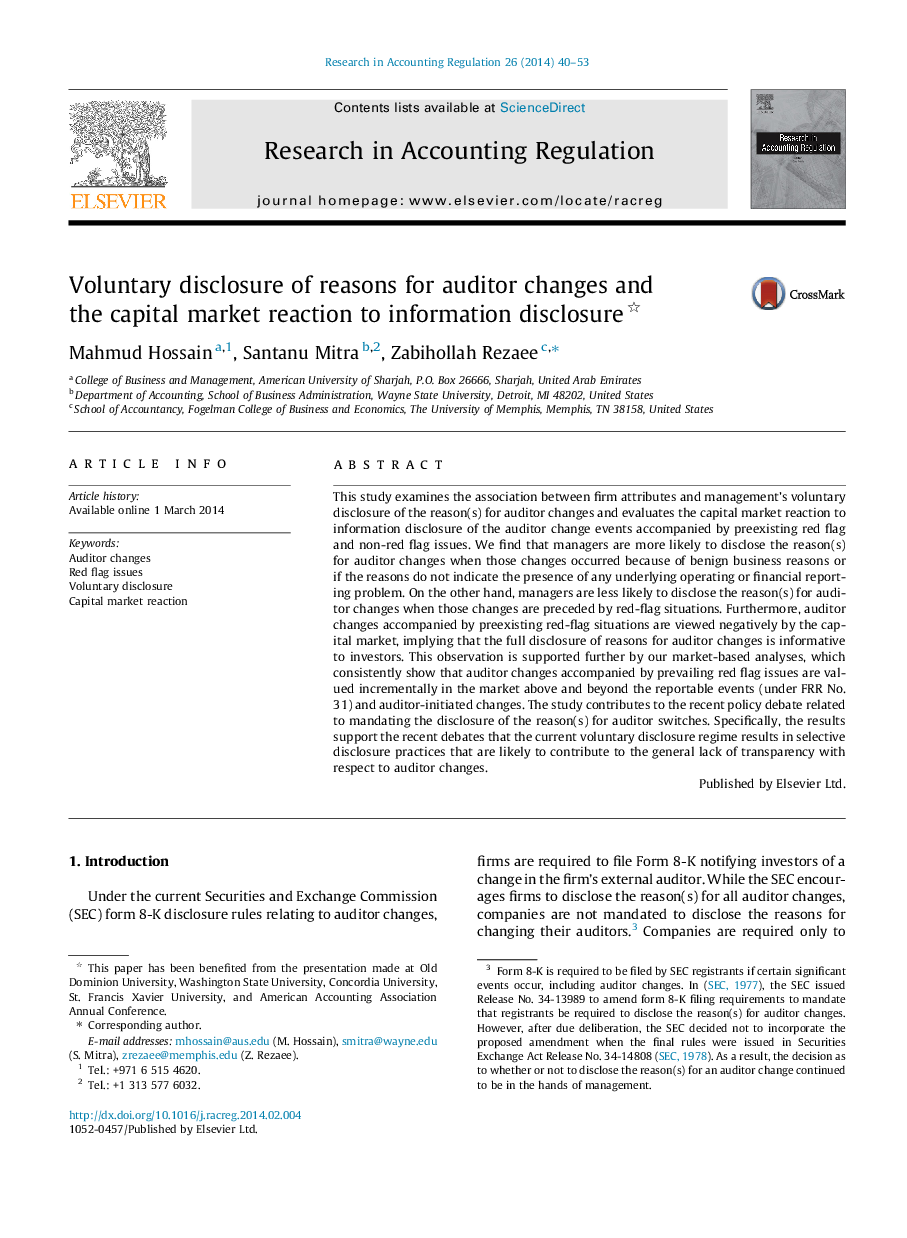| Article ID | Journal | Published Year | Pages | File Type |
|---|---|---|---|---|
| 1006667 | Research in Accounting Regulation | 2014 | 14 Pages |
This study examines the association between firm attributes and management’s voluntary disclosure of the reason(s) for auditor changes and evaluates the capital market reaction to information disclosure of the auditor change events accompanied by preexisting red flag and non-red flag issues. We find that managers are more likely to disclose the reason(s) for auditor changes when those changes occurred because of benign business reasons or if the reasons do not indicate the presence of any underlying operating or financial reporting problem. On the other hand, managers are less likely to disclose the reason(s) for auditor changes when those changes are preceded by red-flag situations. Furthermore, auditor changes accompanied by preexisting red-flag situations are viewed negatively by the capital market, implying that the full disclosure of reasons for auditor changes is informative to investors. This observation is supported further by our market-based analyses, which consistently show that auditor changes accompanied by prevailing red flag issues are valued incrementally in the market above and beyond the reportable events (under FRR No. 31) and auditor-initiated changes. The study contributes to the recent policy debate related to mandating the disclosure of the reason(s) for auditor switches. Specifically, the results support the recent debates that the current voluntary disclosure regime results in selective disclosure practices that are likely to contribute to the general lack of transparency with respect to auditor changes.
